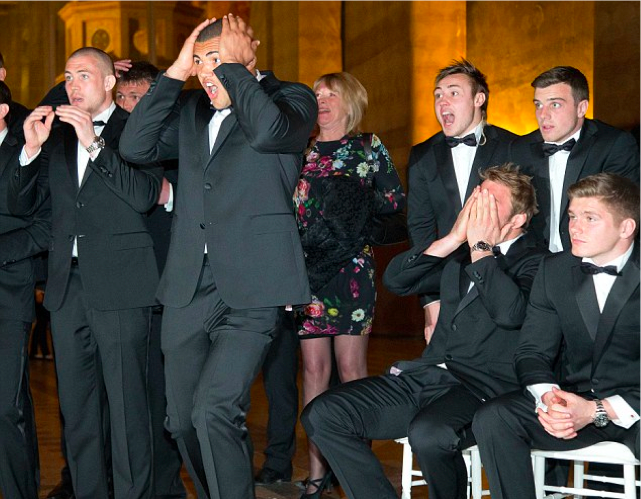Will Scott
Contributor
England’s failure to win the Six Nations was good for England. This may be a surprising statement to come from the mouth (or pen) of an Englishman, but Test rugby like any sport, requires a certain amount of pain and disappointment to yield the best results. This England team is a case in point.
An old coach of mine constantly referred to the need for a ‘pain anchor’. This is the belief that motivation is driven by past failures.
Stuart Lancaster was quick to point this out in his meditations about England’s nearly moment. “Obviously you have got that frustration” he said “we haven’t quite got across the line this time, but in some ways you can channel that frustration into more positive performances in New Zealand as that is when this season finishes for us.” This points to an inescapable quality that all successful teams possess; the hunger to overcome failure.
Michael Jordan, the greatest basketball player to have ever lived, once said: “I’ve missed more than 9000 shots in my career. I’ve lost almost 300 games. 26 times, I’ve been trusted to take the game winning shot and missed. I’ve failed over and over and over again in my life. And that is why I succeed.” The ability to successfully deal with failure is the key to success in any sport.
This England team have had their fair share of failure and disappointment over the last four years. Stuart Lancaster took over from Martin Johnson after an embarrassing exit from the 2011 World Cup. They flew home amid a tidal wave of accusations of arrogance, complacency and greed. One player summed up the team culture at the time after the quarter-final exit to France with the words, “That’s £35,000 down the toilet”.
It seems as though Lancaster has created a culture that has renewed pride in the jersey and what it means to play for England. This has been essential for the side’s responses to setbacks and failures. Take another recent failure. Wales destroyed England at the Millennium Stadium last year and with it destroyed any pretentions of a Grand Slam for the away side.
Undoubtedly this provided the ‘pain anchor’ for this years campaign. Outgunned both physically and mentally Lancaster’s young side were dispatched with ease. Despite the presence of 12 Lions England were able to assert themselves through their oppressive defence and willingness to counter from deep in their own half.
This year’s championship brought a new set of ‘pain anchors’ that should provide plenty of whiteboard fodder for England’s coaches.
The agonizing last-minute defeat to France was prompted by the loss of two tries in the first 17 minutes in Paris. There was also a degree of failure in Rome. Despite the highest total score there since 2000 several chances went unconverted and the intercepted pass thrown late in the game ensured any hope of erasing the points difference was lost.
Memories of this championship will provide an anchor of titanic proportions as the team heads to New Zealand this summer.
With some standout performances from the likes of Mike Brown, Courtney Lawes, Joe Launchbury and Luther Burrell there are some positives too. Lancaster has cultivated a young squad with growing confidence and depth. Although we will learn more about them in the next 18 months, particularly with that trip to face the All Blacks, the foundation for a home World Cup campaign has been laid.
While many in these parts will have rejoiced at the pictures of the tuxedo clad England team watching Ireland beat France. This is precisely the place that England should look to when they regroup before their summer travels.
When it comes to international rugby I am inclined to agree with Michael Jordan. You must be prepared to miss a few shots or opportunities before you are ready to make the important ones. Under Stuart Lancaster this England team has taken another small step towards making these shots.






